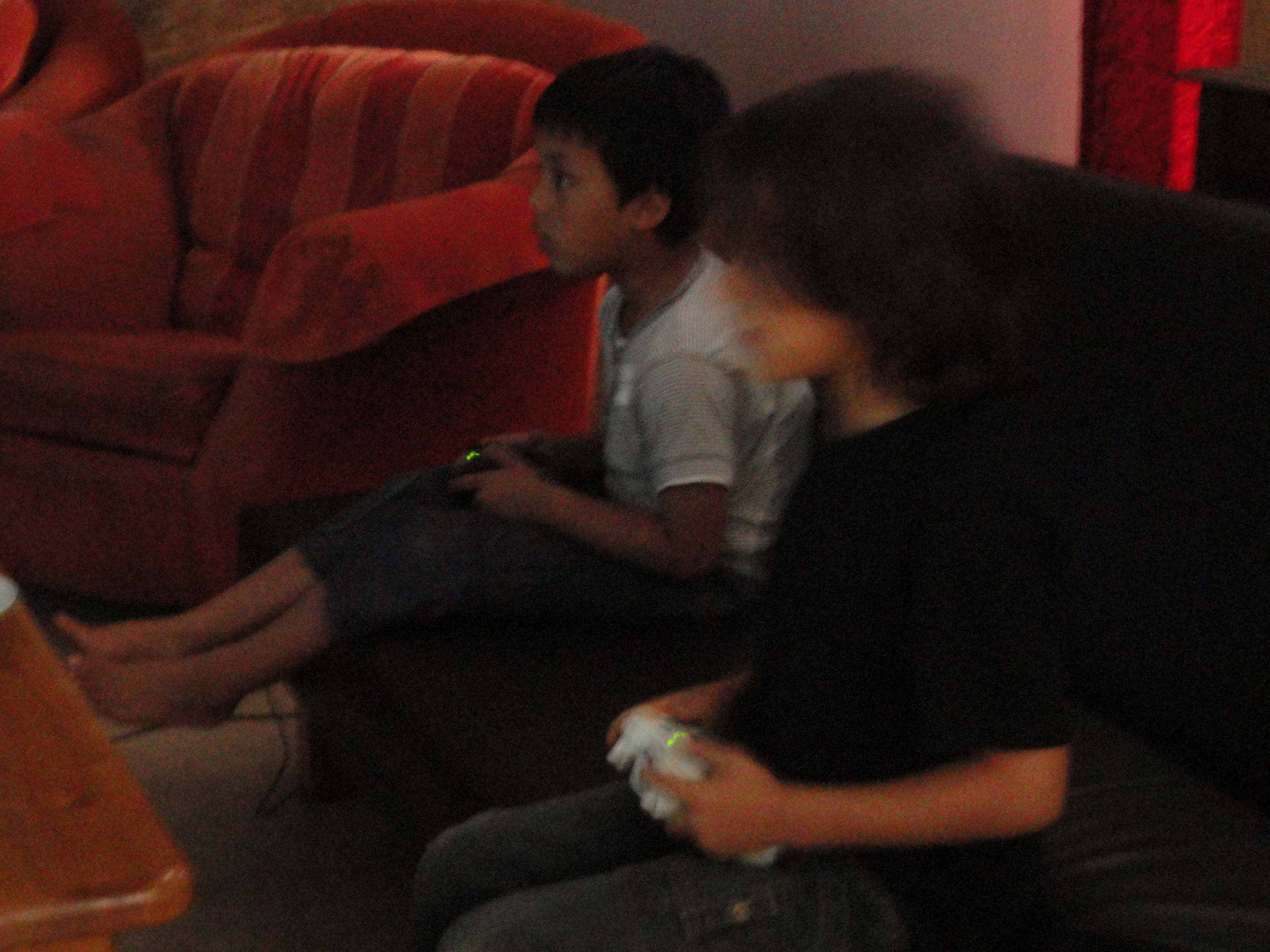Demonizing food creates a demon. Being calm creates more calm.
photo by Sandra Dodd
You guys do it your way, let your kids run wild, let them curse, let them do every little thing they want to do.arcarpenter/Amy responded:
That's really not how my house looks or feels—not wild, not out-of-control. There is something in-between the extremes of demanding obedience and having children feel and act out-of-control all the time. The something in-between is giving feedback about how a behavior is affecting me and others, while also being understanding that the behavior is coming from a valid need. The something in-between often takes more time and attention than either of the extremes, but it is worth it, because my children get a chance to problem-solve and to grow in their own emotional awareness now, when they're young, instead of trying to figure it all out on their own when they're older.
If you're living in the future too much—
in the future that you're imagining,
in the future that you're predicting,
in the future that you would like to imagine you can control,
in the future that you'd like to imagine you can even imagine,
that's a problem.
So it's good to aim for living in the moment in a whole way—your whole self, not separated from your past or your future, but also not really over-focussed on it.




How do you feel about the word "permissive" to describe unschooling and the lifestyle surrounding it? (I'm hearing this word a lot when trying to explain unschooling to family and friends...)My response was:
"Permissive" is a term of insult used by and among people who feel the right and duty to control.
It was used by aristocrats of other aristocrats who were not reigning in their servants to the point that was recommended to keep them in line.
It's used by strict teachers who demand silence and obedience in the classroom, of other teachers who actually engage in dialog with their students, and unscripted dialog at that, which could lead anywhere, instead of just leading to the correct answers in the book, and preparing people for the test.
Don't look as "permissiveness" as though it exists in nature. See it as the pejorative term it is, and see the beliefs of the only people who can use it: controlling people trying to make others be as controlling as they are.


